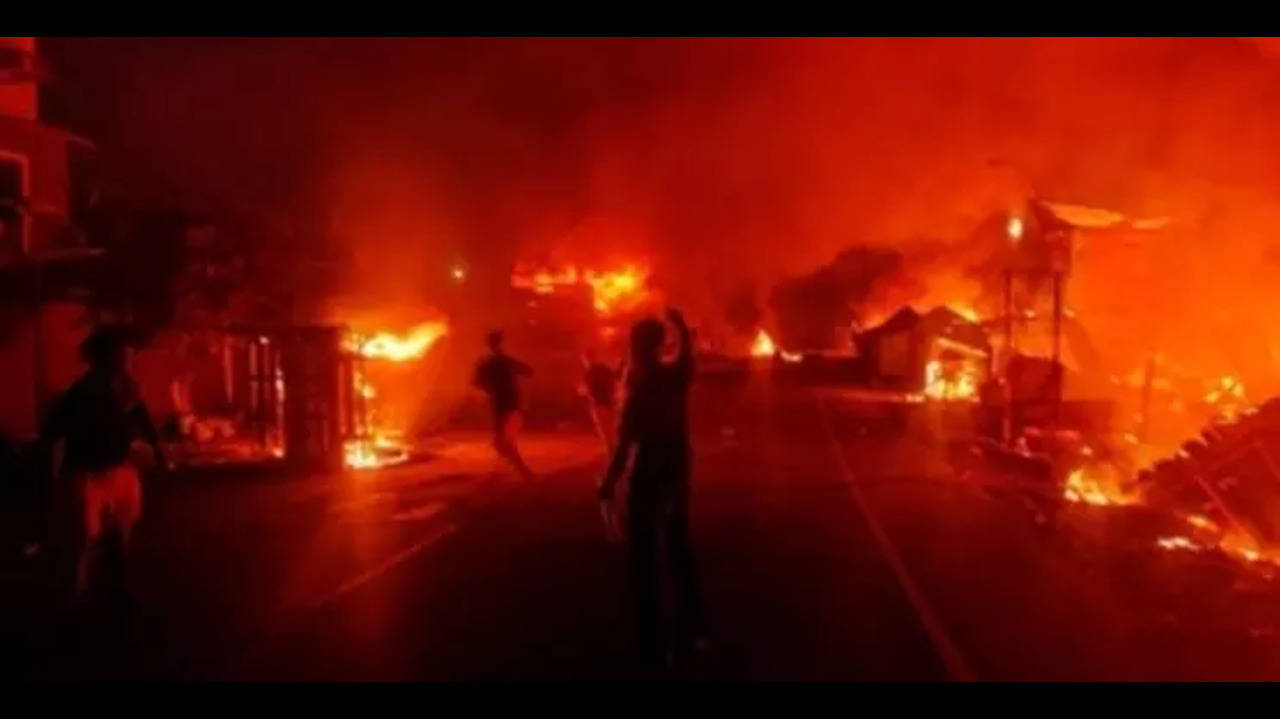The European Parliament adopted at its plenary session in France’s Strasbourg late Wednesday a joint motion by six political groups seeking decisive steps to end the “ethnic and religious violence” in the northeastern state.
The motion, put to vote after a debate, also urges India to “protect all religious minorities, including the state’s Christian community” and also “repeal the unlawful Armed Forces (Special Powers) Act in line with the recommendations of the UN Universal Periodic Review”.
The joint resolution, which “denounces in the strongest terms nationalistic rhetoric deployed by leading members of the BJP party”, coincides with PM Narendra Modi landing in France on a two-day visit on Thursday.
The text adopted at the plenary session mentions how “violent clashes between the Meitei and Kuki ethnic communities in Manipur since May 3, 2023 have left at least 120 people dead and 50,000 displaced, and have destroyed over 1,700 houses, 250 churches and several temples and schools”.
The motion claims that “intolerance towards religious and belief minorities, including Christians, contributed to the violence”. It urges the authorities to allow independent investigations into the violence” and “unhindered access to humanitarian aid providers, international observers and journalists”.
Flagging “politically motivated, divisive policies promoting Hindu majoritarianism”, an increase in militant activity and “accounts of partisan involvement by security forces in the killings”, the text alleges that these have increased public distrust of the administration.
The motion calls on all stakeholders in Manipur to exercise restraint and political leaders to not make inflammatory statements. They should instead re-establish trust and play an impartial role in mediating in the tensions, it says.
The motion also reminds India that the UN High Commissioner for Human Rights has appealed to safeguard the rights of “human rights defenders” in the country, while raising concerns over “shrinking space for civil society”. It goes on to plead that “those who are critical of the government’s conduct (should) not be criminalised”.
Resolving to call for the reinforcement of the EU-India Human Rights Dialogue, the motion asks the European Commission vice-president and member states “to systematically and publicly raise human rights concerns with India at the highest level, particularly regarding freedom of expression and religion”.
The motion, put to vote after a debate, also urges India to “protect all religious minorities, including the state’s Christian community” and also “repeal the unlawful Armed Forces (Special Powers) Act in line with the recommendations of the UN Universal Periodic Review”.
The joint resolution, which “denounces in the strongest terms nationalistic rhetoric deployed by leading members of the BJP party”, coincides with PM Narendra Modi landing in France on a two-day visit on Thursday.
The text adopted at the plenary session mentions how “violent clashes between the Meitei and Kuki ethnic communities in Manipur since May 3, 2023 have left at least 120 people dead and 50,000 displaced, and have destroyed over 1,700 houses, 250 churches and several temples and schools”.
The motion claims that “intolerance towards religious and belief minorities, including Christians, contributed to the violence”. It urges the authorities to allow independent investigations into the violence” and “unhindered access to humanitarian aid providers, international observers and journalists”.
Flagging “politically motivated, divisive policies promoting Hindu majoritarianism”, an increase in militant activity and “accounts of partisan involvement by security forces in the killings”, the text alleges that these have increased public distrust of the administration.
The motion calls on all stakeholders in Manipur to exercise restraint and political leaders to not make inflammatory statements. They should instead re-establish trust and play an impartial role in mediating in the tensions, it says.
The motion also reminds India that the UN High Commissioner for Human Rights has appealed to safeguard the rights of “human rights defenders” in the country, while raising concerns over “shrinking space for civil society”. It goes on to plead that “those who are critical of the government’s conduct (should) not be criminalised”.
Resolving to call for the reinforcement of the EU-India Human Rights Dialogue, the motion asks the European Commission vice-president and member states “to systematically and publicly raise human rights concerns with India at the highest level, particularly regarding freedom of expression and religion”.

